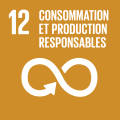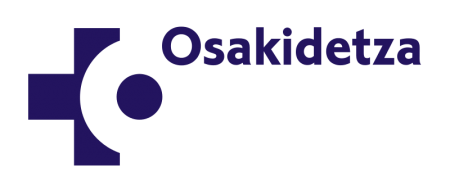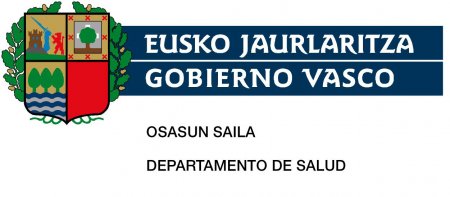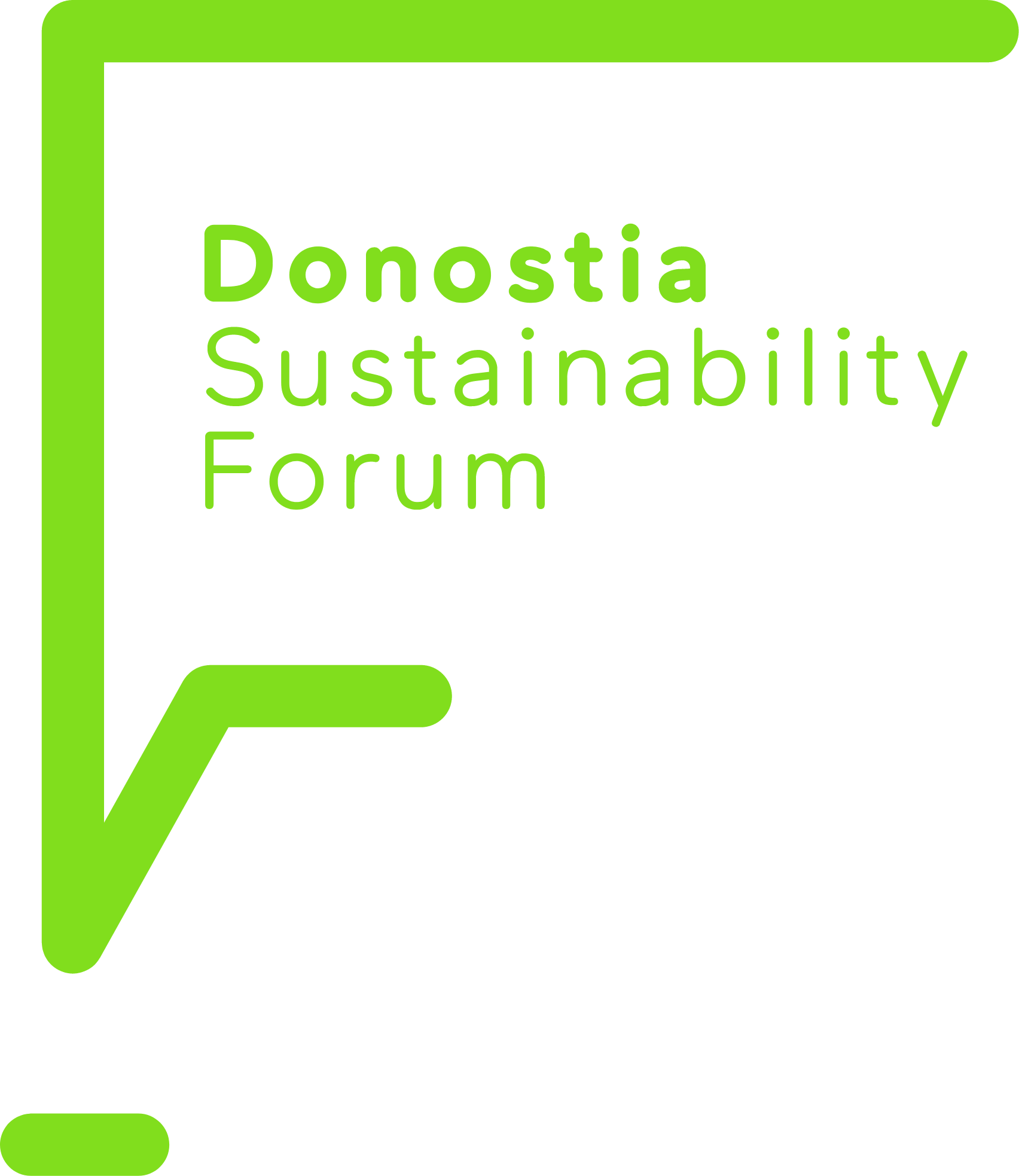
Sweeteners: health, obesity, safety and sustainability
Descripción
Sweeteners and their use in food processing and for health purposes is a subject generating nowadays big controversia, mainly because the real effects of the use of Sweeteners and Swetness enhancers on health are still unknown. In addition, the regulatory framework and consumers's perceptions of sweeteners and the use of these food ingredients is also under development. Given these premises, the EU funded the SWEET consortium, with the main aim of identifying and addressing the barriers and facilitators to the use of sweeteners and sweetness enhancers (S&SEs), as well as to examining the risks and benefits of using S&SEs to replace sugar in the diet in the contexts of health, obesity, safety and sustainability.
This Summer Course will serve as a channel for communicating to scientists, health professionals and general public the new findings on the use, acceptance and barriers within S&SEs use.
Objetivos
To offer the last updates on sweeteners research on health and weight management. How their use may help to maintain good health indicators or weight control.
To inform patients and caregivers on how sweeteners may affect appetite, microbiota and other metabolic factors.
To explain how food technology is integrating the use of S&SEs in foods, and the origin of this S&SEs, either plant-based or artificial.
To widen the knowledge of consumers' perceptions, barriers and facilitators for the use of S&SEs, as well as to give light to regulatory aspects and dissemination strategies.
Público objetivo al que está dirigida la actividad
- Alumnado universitario
- Estudiantes no universitarios
- Profesorado
- Profesionales
- Público en general
Programa
27-06-2022
Registration
Inauguración institucional. Orden de intervención:
- jason Halford | EASO - President
- Anne Raben - | University of Copenhagen - Professor
- J. Alfredo Martínez | Universidad de Navarra - Professor
“Evidence of the role of sweeteners on appetite and metabolism emerging from systematic reviews“
- Santiago Navas Carretero | University of Navarra - Researcher
“The role of non-caloric sweeteners in body weight regulation and glycemic control - Facts, myths and current research“
- Anne Raben - | University of Copenhagen - Professor
“Sweet Taste: Hedonic Impact and Control Over Food Intake“
- Graham Finlayson | University of Leeds - Professor
Coffee Break
“Sweeteners, microbiota and metabolic health“
- Ellen Blaak | University of Maastricht - Professor
“Sweet Tooth“
- Kees de Graaf | Wagenningen University - Professor
Síntesis
28-06-2022
“Sucrose functionality in fine bakery ware and impact of sucrose substitution on nutrition and sensory profiles “
- Alain Le-bail | Oniris - Professor (Participa via zoom)
“Production, efficacy and safety of novel plant based sweeteners and blends“
- Corey Scott | Cargill Ltd - Scientist
Coffee Break
“Consumption habits and acute effects of sweet beverage intake on appetite, metabolism and gastro-intestinal symptoms. Overview“
- Eva Almirón Roig | University of Navarra - Professor
“Consumption habits and acute effects of sweet beverage intake on appetite, metabolism and gastro-intestinal symptoms. Results of the Beverages Study“
- J. Alfredo Martínez | University of Navarra - Professor
“Sweeteners Research: Using LinkedIn for impact in science“
- Sheree Bryant | European Association for the Study of Obesity (EASO) - Scientist
Síntesis
29-06-2022
“The EU regulatory framework for introduction of new S&SEs and impact on research and innovation“
- Monique Raats | University of Surrey - Professor
“Population based evidence about Sweeteners intake“
- Edith Feskens Johanna | Wagenningen University - Professor
“There is much to learn about the sustainability of sweeteners “
- James Suckling | University of surrey - Professor
Coffee Break
“The role of mass and social media in promoting risks and benefits of Sweeteners & Sweetness Enhancers“
- Monique Raats | Newcastle University - Scientist
Cierre
- Anne Raben - | University of Liverpool - Professor
Directoras/es

J. Alfredo Martínez
IMDEA Alimentación, Universidad de Valladolid y RINN22
Doctorado en Nutrición, además de farmacéutico y licenciado en Medicina. Ha sido catedrático de Nutrición en la Universidad de Navarra y actualmente en la Universidad de Valladolid. Es director del Programa de Nutrición de Precisión de IMDEA Alimentación y ha participado en varios ensayos nutricionales (12 proyectos) de referencia en la UE, como DIOGENES, SEAFOODplus, NUGENOB, FOOD4ME, STOP, PREVIEW y SWEET, y en consorcios nacionales como PREDIMED y CIERobn, cuyos resultados y contribuciones conceptuales se han publicado en las revistas médicas y científicas más relevantes, como NEJM, Lancet, Nature Endocrinology, BMJ, AJCN, Circulation, JAMA, Obesity Reviews, etc., con más de 35.000 citas. Ha supervisado a más de 90 tesis doctorales y ha publicado más de 950 artículos en las áreas de Obesidad, Nutrición y Epidemiología Nutricional, incluyendo ómicas nutricionales de precisión (Factor H > 115). Ha sido presidente de la Unión Internacional de Ciencias de la Nutrición (IUNS) y ha recibido varios premios importantes, incluyendo los premios Hipócrates y Dupont.
Santiago Navas-Carretero se licenció en Farmacia por la Universidad Complutense de Madrid en 2002, y se doctoró en Nutrición en 2007 por esta misma Universidad, recibiendo además la mención “Doctor Europeus”. Se incorporó a la Universidad de Navarra en Octubre de 2008 y desde entonces lleva realizando sus labores de investigación en dicho Centro. Es investigador en el Centro de Investigación en Nutrición de la Universidad de Navarra. Es Investigador Principal de 2 contratos de investigación (Nutriprecisión y Medkids), 2 proyectos de Gobierno de Navarra (ALINFA y CORALS-centros educativos), además de haber participado en numerosos proyectos de nivel regional, nacional y europeo. Cabe destacar los proyectos europeos Food4Me, PREVIEW y SWEET. Además, es autor o coautor de 120 articulos científicos y capítulos de libros.
Ponentes

Eva Almirón Roig

Ellen Blaak
Prof. Ellen Blaak is Professor of Human Biology at the Department of Human Biology since 2007 and is Chair of the Department of Human Biology. Her research focuses on the role of disturbances in fatty acid metabolism and interorgan cross-talk (gut-adipose tissue-muscle metabolism) in the aetiology of obesity and type 2 diabetes mellitus (>350 publ) as well as the impact of nutritional or lifestyle intervention to reverse these changes. She is member of the Nutrition committee of the Dutch Health Council and of several advisory board/grant evaluation committees. She obtained funding from among others the Netherlands Organisation for Scientific research/Dutch Diabetes Research Foundation/EU as a PI for 30 research projects and has supervised more than 30 PhD theses.

Sheree Bryant
Sheree Bryant es directora de comunicaciones de la Asociación Europea para el Estudio de la Obesidad y proporciona apoyo de comunicación y difusión al proyecto SWEET.

Kees de Graaf

Edith Feskens Johanna
Wageningen University

Graham Finlayson
University of Leeds

Alain Le-bail

J. Alfredo Martínez
IMDEA Alimentación, Universidad de Valladolid y RINN22
Doctorado en Nutrición, además de farmacéutico y licenciado en Medicina. Ha sido catedrático de Nutrición en la Universidad de Navarra y actualmente en la Universidad de Valladolid. Es director del Programa de Nutrición de Precisión de IMDEA Alimentación y ha participado en varios ensayos nutricionales (12 proyectos) de referencia en la UE, como DIOGENES, SEAFOODplus, NUGENOB, FOOD4ME, STOP, PREVIEW y SWEET, y en consorcios nacionales como PREDIMED y CIERobn, cuyos resultados y contribuciones conceptuales se han publicado en las revistas médicas y científicas más relevantes, como NEJM, Lancet, Nature Endocrinology, BMJ, AJCN, Circulation, JAMA, Obesity Reviews, etc., con más de 35.000 citas. Ha supervisado a más de 90 tesis doctorales y ha publicado más de 950 artículos en las áreas de Obesidad, Nutrición y Epidemiología Nutricional, incluyendo ómicas nutricionales de precisión (Factor H > 115). Ha sido presidente de la Unión Internacional de Ciencias de la Nutrición (IUNS) y ha recibido varios premios importantes, incluyendo los premios Hipócrates y Dupont.
Santiago Navas-Carretero se licenció en Farmacia por la Universidad Complutense de Madrid en 2002, y se doctoró en Nutrición en 2007 por esta misma Universidad, recibiendo además la mención “Doctor Europeus”. Se incorporó a la Universidad de Navarra en Octubre de 2008 y desde entonces lleva realizando sus labores de investigación en dicho Centro. Es investigador en el Centro de Investigación en Nutrición de la Universidad de Navarra. Es Investigador Principal de 2 contratos de investigación (Nutriprecisión y Medkids), 2 proyectos de Gobierno de Navarra (ALINFA y CORALS-centros educativos), además de haber participado en numerosos proyectos de nivel regional, nacional y europeo. Cabe destacar los proyectos europeos Food4Me, PREVIEW y SWEET. Además, es autor o coautor de 120 articulos científicos y capítulos de libros.
Professor Monique Raats is Director of the University of Surrey’s Food, Consumer Behaviour and Health (FCBH) Research Centre. FCBH research domains include: food-related behaviour and policy interventions (such as labelling, health claims) to achieve sustainable and healthy lifestyles; social, policy and ethical issues relevant to the grand societal challenges such as sustainability and obesity; study of food systems from the perspective of significant actors and stakeholders within the system; methodologically advancing the field of food consumer science through exploring novel sources of data and methods of data linking. She previously worked at the Institute of Food Research, Health Education Authority and University of Oxford. Her expertise is in the area of public health and behavioural nutrition research, gained on a variety of projects. Her research is wide ranging both in terms of topics covered (e.g. food choice, policy development, food safety) and methodologies used (e.g. qualitative, quantitative, stakeholder consultation). To date she has published over 140 refereed papers, other publications including 20 book chapters and edited two books ("The Psychology of Food Choice" and "Food for the Ag(e)ing Population").

Anne Raben -
University of Copenhagen

Corey Scott

James Suckling
University of Surrey
Dr James Suckling is a Research Fellow at the Centre for Environment and Sustainability, within the University of Surrey, UK. He trained as a physicist, before working for 6 years in R&D at Sharp. He has worked in sustainability for 6 years and researched diverse topics including circular economy models for mobile phones, up-scaling of niche innovations in the water-energy-food nexus, rearing insects for food and feed, and upscaling of smart local energy systems. All his research in CES has had a multi-disciplinary focus, including technical and social aspects throughout. He has expertise in life cycle assessment. His latest role is on the EU Horizon 2020 funded SWEET Project, researching the sustainability of replacing sugar with sweeteners and sweetness enhancers in food and drink.
Precios matrícula
| Presencial | Hasta 27-06-2022 |
|---|---|
| 135,00 EUR | |
| 110,00 EUR | |
| 77,00 EUR | |
| 27,50 EUR | |
| 0 EUR |
| Online en directo | Hasta 27-06-2022 |
|---|---|
| 110,00 EUR | |
| 110,00 EUR | |
| 71,00 EUR | |
| 77,00 EUR | |
| 27,50 EUR | |
| 0 EUR |
Lugar
Palacio Miramar
Pº de Miraconcha nº 48. Donostia / San Sebastián
Gipuzkoa
Palacio Miramar
Pº de Miraconcha nº 48. Donostia / San Sebastián
Gipuzkoa
Objetivos de desarrollo sostenible
Desde UIK queremos aportar a la consecución de los Objetivos de Desarrollo Sostenible (ODS) 2030. Para ello, hemos identificado a qué objetivos contribuyen nuestros programas. Puedes consultar los objetivos a continuación.
La Agenda 2030 es la nueva agenda internacional de desarrollo que se aprobó en septiembre de 2015 en el seno de Naciones Unidas. Esta Agenda pretende ser un instrumento para la lucha a favor del desarrollo humano sostenible en todo el planeta, cuyos pilares fundamentales son la erradicación de la pobreza, la disminución de las vulnerabilidades y las desigualdades, y el fomento de la sostenibilidad. Es una oportunidad única para transformar el mundo antes del 2030 y garantizar los derechos humanos para todas las personas. Esta agenda marca 17 objetivos.

3 - Salud y bienestar
Garantizar una vida sana y promover el bienestar de todas las personas a todas las edades. Cuestiones clave: cobertura sanitaria universal, salud sexual y reproductiva, reducción de personas accidentadas por tráfico, polución y productos químicos, reducción tasa de mortalidad materna y neonatal, fin de epidemias como SIDA, combatir hepatitis y enfermedades transmitidas por el agua, prevención de drogas y alcohol, control tabaco.
Más información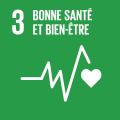
12 - Producción y consumo responsables
Garantizar modalidades de consumo y producción sostenibles. Cuestiones clave: gestión sostenible y uso eficiente de los recursos naturales, reducción de partículas químicas liberadas a la atmósfera, agua y suelo, disminución de residuos, reciclaje, reutilización y reducción, prácticas sostenibles, compra pública sostenible, estilos de vida sostenibles, racionalización de subsidios ineficientes a combustibles fósiles.
Más información